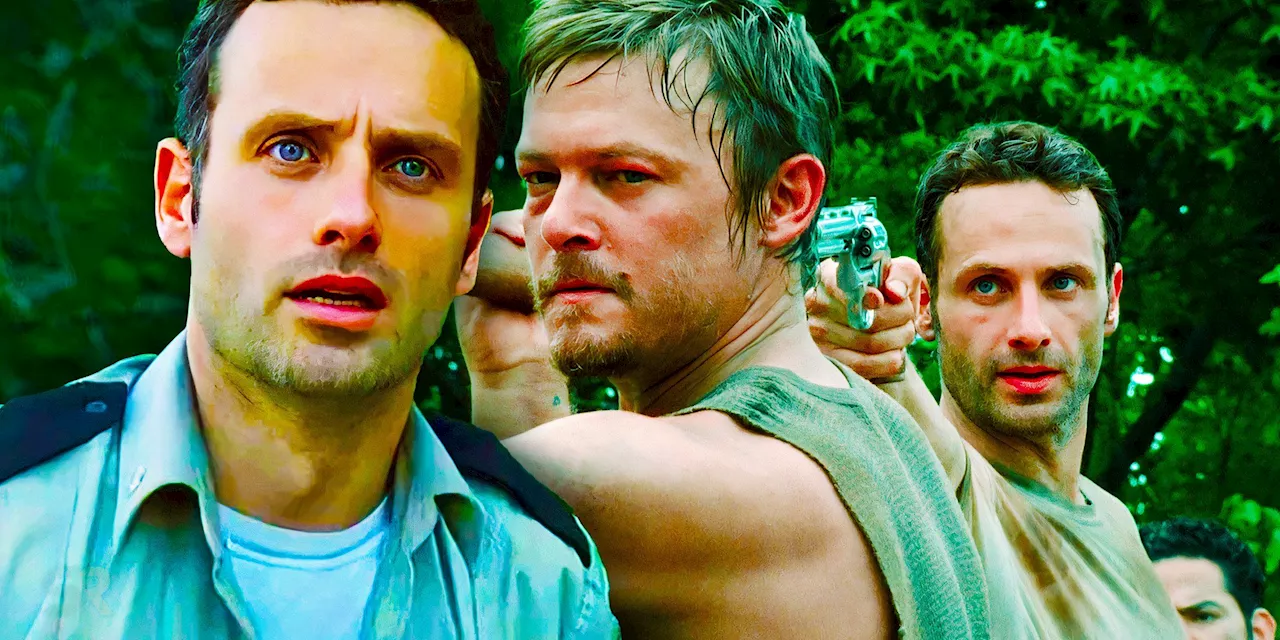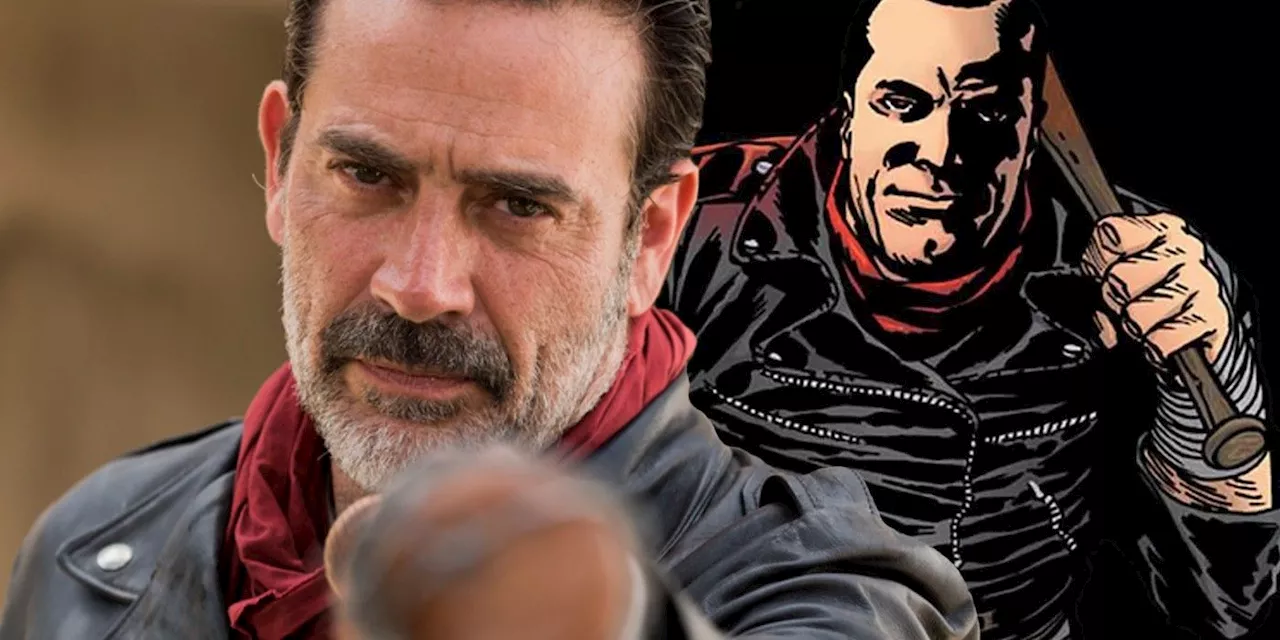While the TV show 'The Walking Dead' was a pop culture phenomenon, the original comic series offers a unique and compelling reading experience. This article explores several reasons why fans of the show, or even those who disliked it, should give the comic a chance.
For those who aren't fans of the television series The Walking Dead , Robert Kirkman 's original comic series, published from 2003 to 2019, is still worth checking out. The comic diverges from the show in several ways – not just in terms of plot trajectory and tone, but also in the impact it has on readers and its influence on popular culture.
There are numerous reasons why a viewer might try out The Walking Dead show and ultimately not continue watching, but for anyone who was intrigued but ultimately disappointed by the AMC series, Kirkman's comic should still be given a chance as an alternative. While the comic originated the best aspects of what the series offered, much about it cannot be replicated on screen, and this list explores some of the elements that make it worth engaging with, even for those who dislike the show. 'The Walking Dead' television series became a pop culture phenomenon when it premiered in 2010, despite the popularity of Robert Kirkman's ongoing comic series, which had been running for seven years. Within a few years, it had become one of the most popular shows on television, alongside hits like 'Breaking Bad' and 'Game of Thrones'. The series' popularity continues to this day, with spin-offs and multimedia extensions, but it doesn't necessarily reflect what made the original comic stand out and worth adapting. While the television series' success reiterated the enduring appeal of the zombie genre and the strength of the source material, its pop culture impact pales in comparison to the groundbreaking quality of the original comic. Although not the first zombie comic, Kirkman's 'Walking Dead' redefined what it meant to tell a zombie story in any medium, while simultaneously expanding many readers' perception of what comic book storytelling could be.The zombie genre, as we know it today, originated in film with George Romero's 1986 movie 'Night of the Living Dead', but as long as they have appeared on screen, zombie stories have been limited in one way or another: by special effects technology, by standards and practices, or simply by budget. Robert Kirkman's 'The Walking Dead' helped usher in a zombie renaissance in the early 2000s by demonstrating how the genre could flourish in comic book form. According to Robert Kirkman, the adaptation of his long-running 'Walking Dead' comic series had an unexpected impact on the direction of the story. While the television adaptation inevitably had to navigate the same restrictions as its cinematic predecessors, Kirkman's comic was uninhibited by any of these concerns. Kirkman was able to use zombies in unrestricted ways, which led him to use them in unexpected and unprecedented ways. In his comic, Kirkman was able to make zombies more than just scary; he made them a force of nature that his human characters had to live with as much as fight against. Violence is a central element of both the 'The Walking Dead' comic and the television show, but there is a noticeable difference between violence depicted on screen versus on the page. Kirkman and artist Charlie Adlard's violence could be hyper-gruesome, but it was just as often hyperbolic – something particularly apparent with Carl Grimes' infamous eye injury, for example. The television adaptation offered a more grounded, 'real' depiction of its violence; while likely an appropriate choice for the show's tone, this also makes it more off-putting to sensitive viewers. That is to say, readers can emotionally and intellectually detach themselves from the violence on the page in 'The Walking Dead' – they can recognize that it is horrifying, without necessarily connecting it to real-world violence. The 'Walking Dead' television series is more intense with its gore, in some ways, because of its live-action format. For people who shied away from the show because of the violent aspect, the comic offers an alternative – the most disturbing images and moments of gore can be quickly glanced at and then moved on from, rather than having to be sat through, or alternatively, fast-forwarded through.
The Walking Dead Comic Books Robert Kirkman Television Adaptions Zombie Genre
United States Latest News, United States Headlines
Similar News:You can also read news stories similar to this one that we have collected from other news sources.
 Lucille Returns to Empower Negan in The Walking Dead: Dead CityThe teaser for the second season of The Walking Dead: Dead City reveals the return of Negan's iconic barbed wire bat, Lucille. Jeffrey Dean Morgan, who plays Negan, expresses his excitement about wielding the bat again and highlights its importance to his character's persona.
Lucille Returns to Empower Negan in The Walking Dead: Dead CityThe teaser for the second season of The Walking Dead: Dead City reveals the return of Negan's iconic barbed wire bat, Lucille. Jeffrey Dean Morgan, who plays Negan, expresses his excitement about wielding the bat again and highlights its importance to his character's persona.
Read more »
 The Walking Dead: Rick And Daryl's First Encounter Was Far From FriendlyThe Walking Dead's most iconic duo, Rick and Daryl, had a hostile first meeting that foreshadows the strength of their bond.
The Walking Dead: Rick And Daryl's First Encounter Was Far From FriendlyThe Walking Dead's most iconic duo, Rick and Daryl, had a hostile first meeting that foreshadows the strength of their bond.
Read more »
 Dad Arrives to Pick Up Son, Finds Scene Straight Out of 'The Walking Dead'For a moment, the everyday task of collecting a child from school became something otherworldly.
Dad Arrives to Pick Up Son, Finds Scene Straight Out of 'The Walking Dead'For a moment, the everyday task of collecting a child from school became something otherworldly.
Read more »
 The Original Pitch for Walking Dead Made 1 Huge Change to Rick's BackstoryLive action version of Rick Grimes, close-up (left) and waking from his coma (right.)
The Original Pitch for Walking Dead Made 1 Huge Change to Rick's BackstoryLive action version of Rick Grimes, close-up (left) and waking from his coma (right.)
Read more »
 All 11 Seasons Of The Walking Dead, Ranked Worst To BestRick-Grimes-from-The-Walking-Dead
All 11 Seasons Of The Walking Dead, Ranked Worst To BestRick-Grimes-from-The-Walking-Dead
Read more »
 The Walking Dead's Most Disappointing DeathsThe Walking Dead, known for its shocking character deaths, occasionally missed the mark. This article examines some of the most disappointing deaths in the show's history, highlighting characters whose arcs were cut short or whose deaths lacked impact.
The Walking Dead's Most Disappointing DeathsThe Walking Dead, known for its shocking character deaths, occasionally missed the mark. This article examines some of the most disappointing deaths in the show's history, highlighting characters whose arcs were cut short or whose deaths lacked impact.
Read more »
